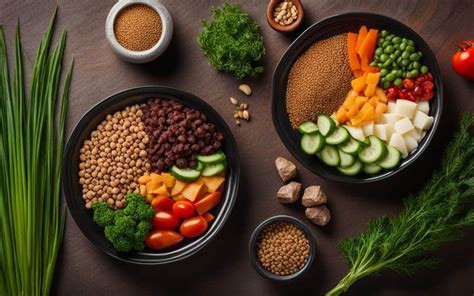Introduction

The health and well-being of your cat are directly influenced by its diet. Providing your feline companion with a nutritious and balanced diet is essential for maintaining its optimal health throughout its life. This comprehensive guide will explore the fundamentals of cat nutrition, its impact on overall health, and the latest advancements in 2025.
Nutritional Requirements for Cats
Cats are obligate carnivores, meaning their bodies are designed to thrive on a diet primarily consisting of animal-based protein. Their nutritional requirements include:
- Protein: 26-30% of daily calories
- Fat: 8-15% of daily calories
- Carbohydrates: Minimal to none
- Water: Ample daily intake
- Vitamins and Minerals: As per recommended daily allowances
The Importance of a Balanced Diet
A balanced diet is crucial for cats because:
- Maintains Energy Levels: Provides the necessary nutrients for daily activities.
- Supports Growth and Development: Essential for kittens and pregnant/nursing cats.
- Promotes Healthy Digestion: High-quality ingredients support a healthy gut microbiome.
- Reduces Disease Risk: Antioxidants and nutrients protect against chronic diseases.
- Enhances Skin and Coat Health: Essential fatty acids support skin and coat vitality.
Dry VS Wet Cat Food
Both dry and wet cat foods have their advantages and disadvantages:
| Feature | Dry Food | Wet Food |
|---|---|---|
| Convenience | Easy to store and serve | Requires refrigeration and preparation |
| Dental Health | Can help reduce tartar | May not be as effective |
| Water Content | Low, requires additional water | High, beneficial for hydration |
| Palatability | Often preferred by cats | May be more appealing to some cats |
Homemade VS Commercial Cat Food
While homemade cat food can provide certain benefits, it is important to consider:
| Feature | Homemade Food | Commercial Food |
|---|---|---|
| Quality Control | Dependent on ingredient quality | Ensured by manufacturers |
| Nutritional Balance | Requires careful recipe formulation | Usually formulated to meet nutritional requirements |
| Convenience | Time-consuming to prepare | Convenient and readily available |
| Cost | Can be more expensive | Varies depending on brand and quality |
The Role of Hydration
Adequate hydration is essential for cat health:
- Prevents Dehydration: Especially important during hot weather or illness.
- Support Kidney Function: Water helps flush toxins from the kidneys.
- Improves Digestion: Water aids in digestion and prevents constipation.
- Reduces Urinary Tract Infections: Proper hydration helps prevent UTIs.
Advanced Cat Nutrition in 2025
The future of cat nutrition holds exciting advancements:
- Personalized Nutrition: DNA analysis and individualized diets tailored to specific cat needs.
- Novel Ingredients: Innovative plant-based proteins and novel fatty acid sources.
- Precision Feeding Devices: Smart feeders that track calorie intake and adjust portion sizes.
- Functional Supplements: Targeted supplements to enhance specific health aspects (e.g., joint support, digestion).
- Veterinary Nutrition Specialists: Increased availability of veterinary specialists in cat nutrition.
FAQs
- How often should I feed my cat? Kittens: 4-6 times per day, Adult cats: 2-3 times per day.
- Can cats eat human food? No, many human foods are harmful to cats (e.g., chocolate, onions).
- Is it okay to give my cat treats? Yes, in moderation and as part of a balanced diet.
- How do I know if my cat is getting enough water? Monitor urine output and offer fresh water daily.
- What are the signs of nutritional deficiencies in cats? Lethargy, weight loss, digestive issues, dull coat.
- How can I transition my cat to a new diet? Gradually mix the new food with the old over 7-10 days.
Reviews
“This guide has been invaluable in helping me understand my cat’s nutritional needs.” – Cat Owner
“The advanced nutrition concepts in 2025 give me hope for the future of our feline companions.” – Veterinarian
“A comprehensive and well-researched resource for anyone who cares about their cat’s health.” – Animal Nutritionist
Conclusion
Cat nutrition is a fundamental aspect of its overall health. By providing a balanced diet, ensuring adequate hydration, and embracing innovative advancements in 2025, you can help your feline friend thrive throughout its life. As a responsible cat owner, it is essential to consult with your veterinarian for personalized guidance on your cat’s nutritional needs.
Tables
| Nutrient | Daily Requirement |
|---|---|
| Protein | 26-30% of calories |
| Fat | 8-15% of calories |
| Carbohydrates | Minimal to none |
| Water | Ample daily intake |
| Vitamin A | 1000 IU/kg body weight |
| Calcium | 100-150 mg/kg body weight |
| Food Type | Pros | Cons |
|---|---|---|
| Dry Food | Convenient, promotes dental health | Low water content |
| Wet Food | High water content, palatable | Requires refrigeration |
| Homemade Food | Control over ingredients | Requires careful formulation |
| Health Benefit | Nutritional Need |
|---|---|
| Energy Levels | Protein, Fat |
| Growth and Development | Protein, Vitamins |
| Digestion | Fiber, Prebiotics |
| Chronic Disease Prevention | Antioxidants, Vitamins |
| Skin and Coat Health | Essential Fatty Acids |
| Common Nutritional Deficiencies | Symptoms |
|---|---|
| Protein Deficiency | Lethargy, Weight Loss |
| Fat Deficiency | Dull Coat, Skin Problems |
| Vitamin A Deficiency | Night Blindness |
| Calcium Deficiency | Weak Bones |
| Iron Deficiency | Anemia |





















